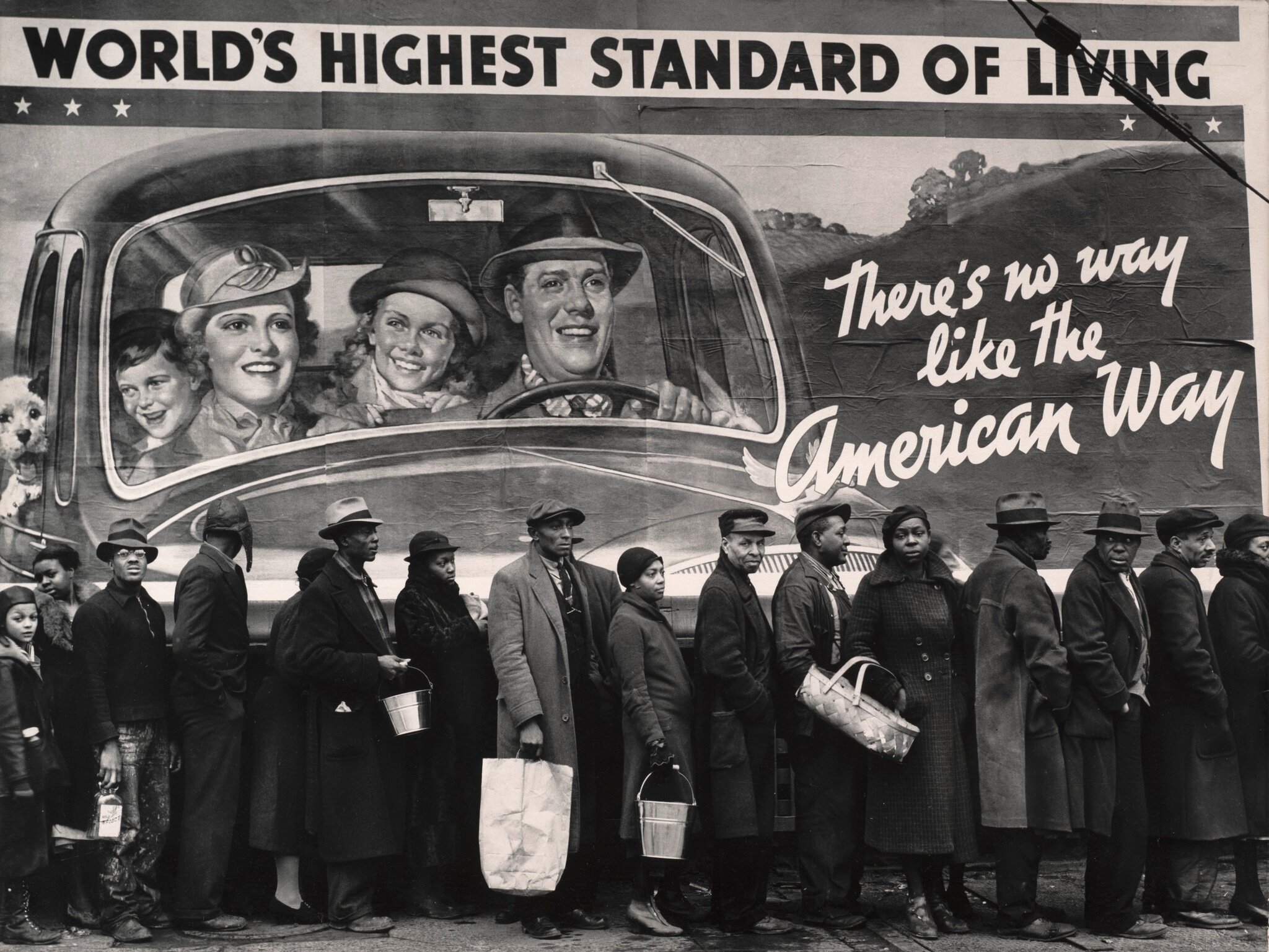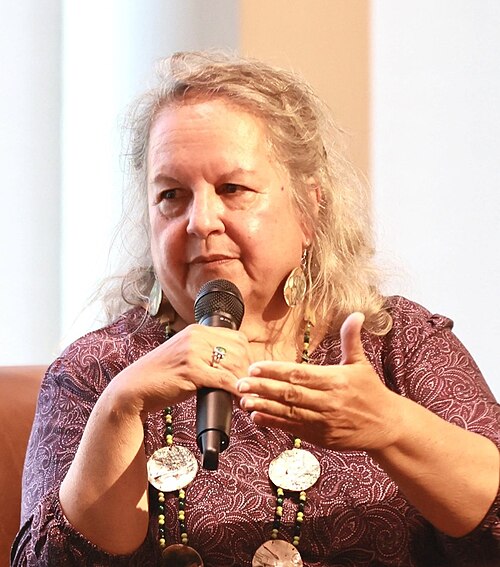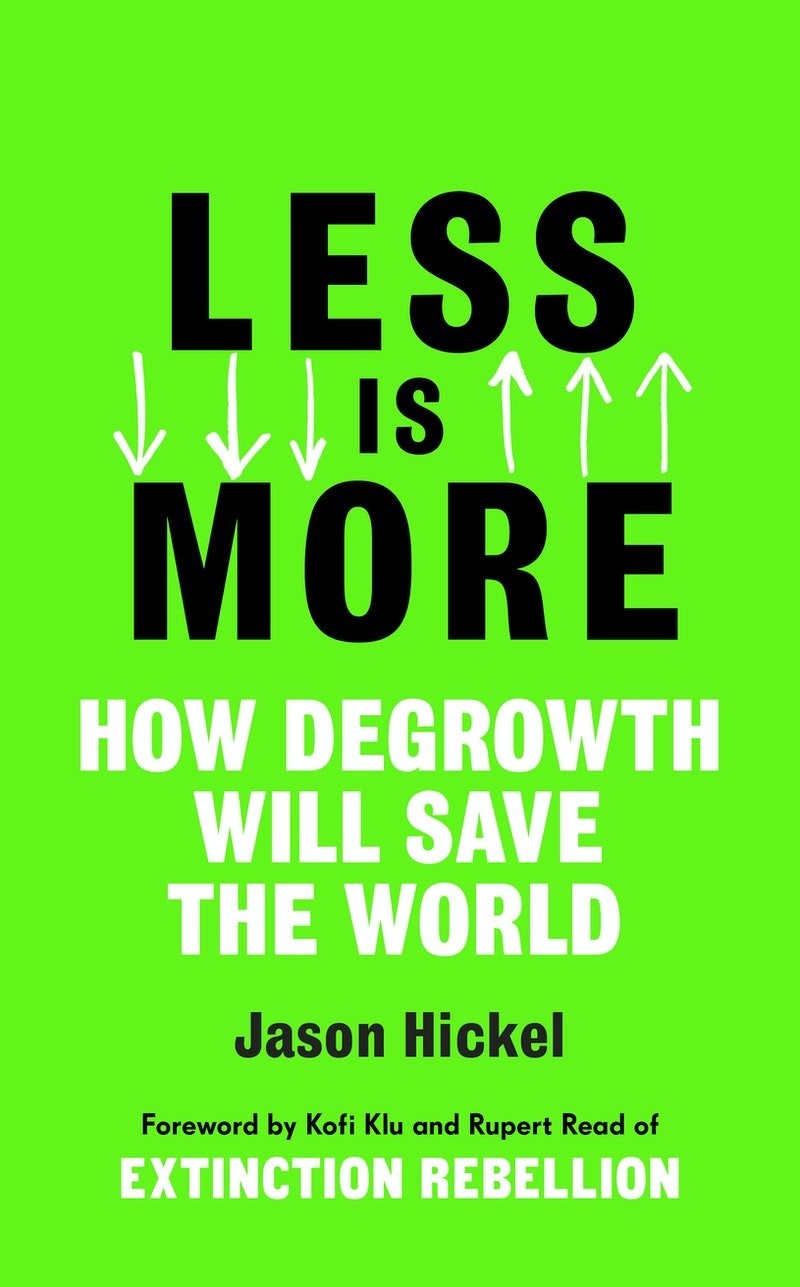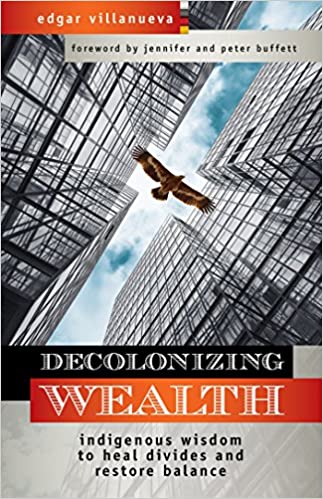February 19, 2021
Economics
Why can't everyone have well-funded schools, reliable infrastructure, wages that keep workers out of poverty, or a comprehensive public health system equipped to handle pandemics?

Margaret Bourke-White/The Life Picture Collection — Getty Images, via Art Resource, NY
"Over a two-decade career in the white-collar think tank world, I’ve continually wondered: Why can’t we have nice things?
"By 'we,' I mean America at-large. As for 'nice things,' I don’t picture self-driving cars, hovercraft backpacks or laundry that does itself. Instead, I mean the basic aspects of a high-functioning society: well-funded schools, reliable infrastructure, wages that keep workers out of poverty, or a comprehensive public health system equipped to handle pandemics — things that equally developed but less wealthy nations seem to have.
"In 2010, eight years into my time as an economic policy wonk at Demos, a progressive policy research group, budget deficits were on the rise. The Great Recession had decimated tax revenue, requiring more public spending to restart the economy.
"But both the Tea Party and many in President Barack Obama’s inner circle were calling for a “grand bargain” to shrink the size of government by capping future public outlays and slashing Social Security, Medicaid and Medicare. Despite the still-fragile recovery and evidence that corporations were already paring back retirement benefits and ratcheting down real wages, the idea gained steam.
"On a call with a group of all-white economist colleagues, we discussed how to advise leaders in Washington against this disastrous retrenchment. I cleared my throat and asked: 'So where should we make the point that all these programs were created without concern for their cost when the goal was to build a white middle class, and they paid for themselves in economic growth? Now these guys are trying to fundamentally renege on the deal for a future middle class that would be majority people of color?'
"Nobody answered. I checked to see if I was muted."
ARTICLE: The Way Out of America’s Zero-Sum Thinking on Race and Wealth




